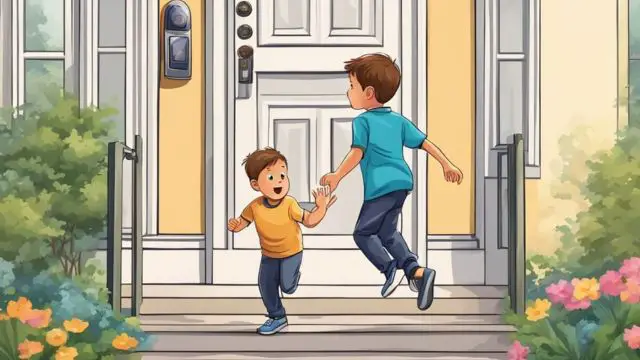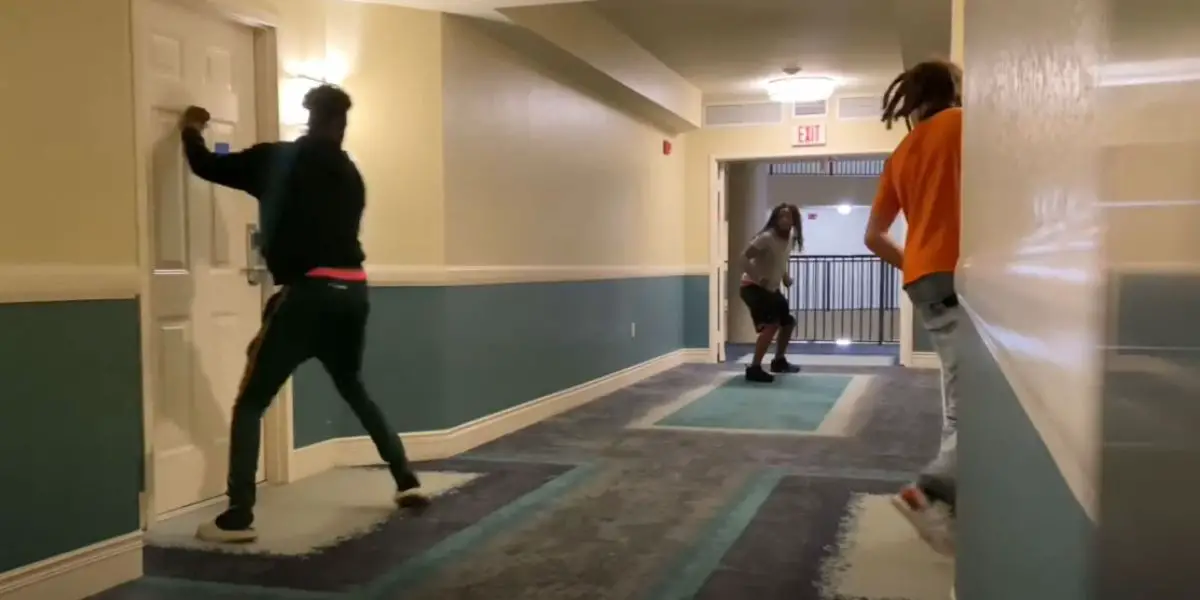Ding dong ditching, also known as “doorbell ditching,” is a prank in which a person rings a doorbell or knocks on a door and then quickly runs away before the homeowner answers.
While this lighthearted prank is often seen as a harmless joke by those who engage in it, it raises a serious question: Is ding dong ditching illegal in Minnesota? If you’ve ever wondered whether this prank can lead to legal trouble, the answer might surprise you.
What Is Ding Dong Ditching?
Ding dong ditching is a classic prank often carried out by children or teenagers. The prank typically involves the person or group ringing the doorbell of an unsuspecting neighbor’s house and then running away before the door is answered. It’s meant to be a harmless joke, but depending on the context and frequency of the prank, it can become more disruptive or even dangerous.
While many view ding dong ditching as a mild nuisance, it can have unintended consequences, including startling homeowners, disturbing the peace, or even creating safety risks. In some cases, what seems like a playful act could potentially lead to legal consequences if it crosses certain boundaries.
Minnesota Law: Is Ding Dong Ditching Illegal?
In Minnesota, the answer is not entirely clear-cut. While the act of ringing a doorbell and running away may not directly violate a specific law, ding dong ditching can still be considered illegal depending on how the act is carried out and its impact on others. Here are the key legal issues that can come into play:
1. Disorderly Conduct
Under Minnesota Statutes Section 609.72, disorderly conduct is defined as engaging in conduct that “tends to disturb the public peace” or disrupts normal activities. While a single ding dong ditch may not be enough to qualify, if the behavior is repeated or done in a manner that causes significant disruption (such as late at night or in a way that disturbs other neighbors), it could potentially be viewed as disorderly conduct.
For example, if a person repeatedly rings someone’s doorbell late at night or in a way that causes distress, the homeowner could view it as harassment. If law enforcement gets involved, the prankster may face fines or penalties for disturbing the peace.
2. Harassment
If the prank is done repeatedly or with intent to annoy, harass, or disturb someone, it could also fall under the category of harassment under Minnesota’s harassment statute (Minnesota Statutes Section 609.749). Harassment occurs when a person engages in behavior that causes someone to feel terrorized, frightened, or threatened. In situations where a person’s doorbell is constantly rung and it becomes more than just a harmless joke, it could potentially escalate to a criminal harassment charge.

If a homeowner reports multiple incidents of ding dong ditching and claims it is causing emotional distress, the prankster could face legal consequences under harassment laws.
3. Trespassing
In some situations, ding dong ditching could even be considered trespassing. Trespassing laws in Minnesota, found under Minnesota Statutes Section 609.605, prohibit entering someone’s property without permission. Although ringing a doorbell on a public street might not initially seem like trespassing, if a person goes onto the property, steps onto a porch, or otherwise leaves a public space to engage in the prank, it could technically qualify as trespassing.
Texas Rolls Out New Driving Law on January 1st Here’s What You Need to Know
While the act of just ringing the doorbell may not always result in a trespassing charge, if the prankster is caught on private property without permission or is harassing the homeowner, it could lead to legal trouble.
What About the Severity of the Offense?
For most first-time offenders, ding dong ditching will likely not lead to criminal charges if it is done infrequently and does not escalate into harassment or trespassing. However, if the prank becomes a repeated nuisance or involves other illegal activities (such as vandalism or property damage), it could lead to more serious consequences, including fines or even criminal charges.
In some cases, a homeowner may not wish to pursue criminal charges but may instead ask the prankster’s parents or guardians to step in and discourage the behavior. This is common for younger pranksters, especially those under 18.
Legal Consequences: What Can Happen?
While the prank might seem like harmless fun to some, there are several legal outcomes that could result from ding dong ditching in Minnesota:
- Fines: If the prank leads to a disorderly conduct charge, the person involved could face fines. Fines can also be levied in cases of harassment or trespassing, especially if the behavior is repetitive or aggressive.
- Criminal Charges: In more severe cases, such as repeated harassment or if the prank involves trespassing or vandalism, criminal charges may be filed. These charges could lead to court appearances and more serious penalties.
- Civil Liability: In rare cases, if the prank causes damage to property or leads to significant emotional distress, the homeowner may choose to file a civil suit for damages, though this is more common in cases involving property damage or defamation.
Conclusion: Is Ding Dong Ditching Worth the Risk?
While ding dong ditching may seem like a harmless prank, it can lead to unexpected consequences if it disrupts others or escalates into a more serious issue. Minnesota law does not specifically address ding dong ditching, but the prank could fall under disorderly conduct, harassment, or trespassing laws, depending on the situation.
Ultimately, it’s important to consider the impact of such pranks on others. What may seem fun in the moment could result in fines, legal action, or strained relationships with neighbors. Before participating in a ding dong ditching prank, it’s worth thinking about the potential consequences and whether it’s truly worth the risk of upsetting someone or getting into legal trouble.
To avoid any issues, it’s always a good idea to engage in pranks that are harmless, considerate, and don’t violate anyone’s rights.
Juniper Calloway is a dedicated journalist with 3 years of experience in covering hard-hitting stories. Known for her commitment to delivering timely and accurate updates, she currently works with MikeandJon Podcast, where she focuses on reporting critical topics such as crime, local news, and national developments across the United States. Her ability to break down complex issues and keep audiences informed has established her as a trusted voice in journalism.







